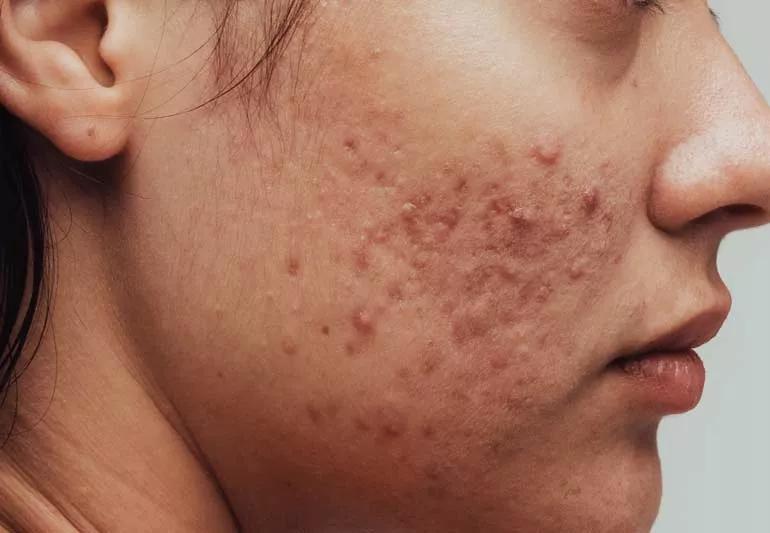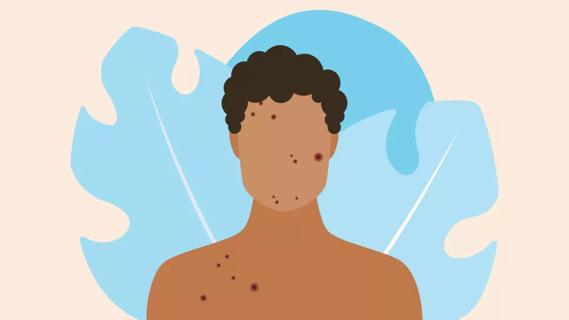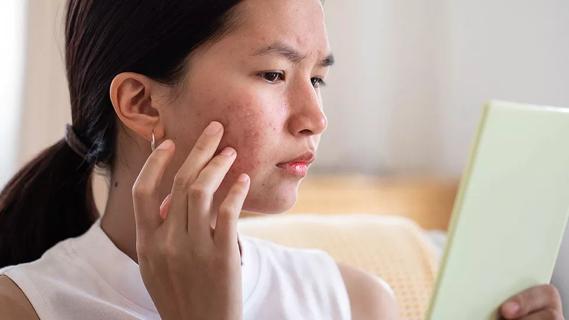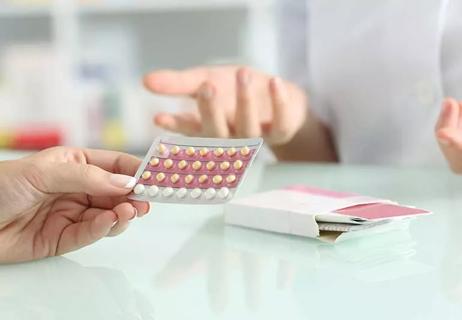The location of your acne can tell you a lot about what’s causing it and how to treat it

If your breakouts always appear in the same spots, your skin may be trying to tell you something.
Advertisement
Cleveland Clinic is a non-profit academic medical center. Advertising on our site helps support our mission. We do not endorse non-Cleveland Clinic products or services. Policy
“Acne is common, so it seems like it should be easy to treat,” says dermatologist Amy Kassouf, MD, “but so many factors play into it, including genetics, hormones and the natural flora, or healthy bacteria, of your skin.”
One clue as to what’s going on? Location, location, location.
A zit or two here and there may be coincidental or genetic. But if you continually have acne on the same parts of your face, your breakouts may be linked to a deeper issue. This is sometimes known as acne face mapping.
“Where on your face you have acne can help determine how to treat it,” Dr. Kassouf says. “Most dermatologists don’t physically ‘map’ people, but we do recognize various zones of the face to help us figure out what’s going to work best for our patients.”
Keep reading to learn more about common places for facial acne and what they mean — plus, how you can keep future breakouts at bay.
If you’ve ever read a beauty blog or magazine, you know about the T-zone, the T-shaped area across your forehead and down your nose. It’s a prime locale for classic blackheads and whiteheads because this area tends to have bigger pores and sebaceous glands than other parts of your face.
This type of acne is called comedonal acne. “Blackheads are open comedones, where the air can get to the sebum and dead skin cells in the pores, which oxidizes and turns them black,” Dr. Kassouf explains. “With whiteheads, the pore is still sealed, and the dead skin cells and the sebum don’t see the air, so they stay naturally white.”
Advertisement
Treating your T-zone acne is all about unclogging those pores. “When it comes to comedones, we turn to medicines that help those skin cells come out of the pores and turn over,” Dr. Kassouf says.
Acne in these two locations can often be blamed on an age-old culprit: hormones.
Boys often get acne along the jawline during growth spurts. Girls and women may see their chins erupt during their menstrual cycles as hormones ebb and flow.
“Acne here is likely to be deeper, bigger and more inflamed than acne elsewhere on the face,” Dr. Kassouf says. Ouch!
Hormonal acne can be tricky to treat because, well, hormones themselves often present a complex puzzle. But Dr. Kassouf says medications and topical treatments can tackle the hormonal component of acne and help clear things up.
Unlike breakouts on your chin or T-zone, spots on your cheeks don’t reveal much about the underlying cause. “Cheeks don’t tell us much,” Dr. Kassouf admits.
Advertisement
Acne here could be genetic, or it could be a fluke. It could also be caused by contact with bacteria: Think dirty makeup brushes, a germ-ridden cell phone or unwashed pillowcases.
“The skin on your cheeks tends to get dry and irritated more easily than the skin on the rest of your face, so don’t go overboard with acne treatments,” Dr. Kassouf cautions.
You can treat cheeks with the same products you use elsewhere, including salicylic acid, benzoyl peroxide and retinoids. But instead of applying it daily, go for every other day on your cheeks. You’ll still get the benefits without the irritation.
To try to prevent cheek acne, keep things clean, from your hair to your bedding to, yes, that cell phone you probably never think to clean. Did you know that your cell phone can harbor more germs than a toilet seat?
If you’re only seeing pimples along your hairline, you may not be experiencing standard T-zone acne. These zits can actually be caused by hair products, like mousse or dry shampoo. “Hair products tend to be very waxy and can build up at the hairline and cause flare-ups,” Dr. Kassouf explains.
If you suspect your favorite hair product is to blame, focus it on the ends of your tresses and steer clear of your scalp. Or try switching to a different product to see if fares better for your face.
Advertisement
Always try to resist the temptation to pop a pimple, which can damage your skin if it’s done incorrectly. If you have a zit that has come to a head and started to weep on its own, you can put a pimple patch atop it to try to speed up its healing.
But how can you keep breakouts from happening to begin with? Dr. Kassouf shares general skin care tips that can help fend them off going forward.
Advertisement
We all have to take our lumps sometimes. But if you can read the clues in your breakouts, hopefully, those lumps will be few and far between.
Learn more about our editorial process.
Advertisement

It’s best to avoid picking at zits, which can damage your skin (though there are ways to minimize the risk)

This medication only works well for short periods of time and when paired with other treatments

‘Zit stickers’ can help heal a new or popped pimple, but they’re limited when it comes to managing acne

Try exfoliating and using salicylic acid to treat this pesky skin care issue

Wear light, breathable clothing, shower after you exercise and change your sheets regularly

As you age, hormones can continue to play a big role in breakouts

Some remedies might help banish breakouts, but others are best avoided

Birth control pills with estrogen are best for fighting hormonal acne

Wearing a scarf, adjusting your outdoor activities and following your asthma treatment plan can help limit breathing problems

Your diet in the weeks, days and hours ahead of your race can power you to the finish line

When someone guilt trips you, they’re using emotionally manipulative behavior to try to get you to act a certain way